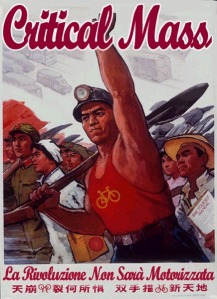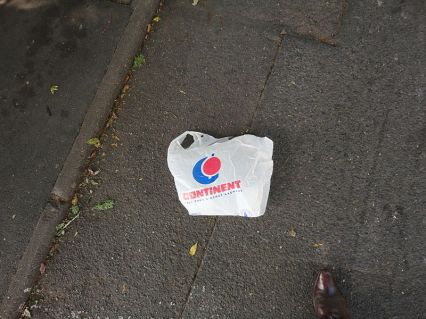Finally, after months of struggle, I managed to overcome my congenital forgetfulness and bring a bag to the grocery store to appease the whims of the Bay Area eco police – only to encounter a new social terror awaiting me.
When it comes to the interpersonal aspect of exchanging goods and services, I’m basically the Matthew Crowley of bumbling, bewildered class confusion. As a child, I was terrified of stores, restaurants, hair salons, and any other place where I was expected to interact in a scripted manner with unfamiliar people whose time or products I was purchasing. I would chalk it up to an upbringing in the former U.S.S.R. and its emphasis on equality and proletarian solidarity and all that…. But unfortunately most of my fellow ex-Soviet countrymen appear to have adopted the opposite strategy: an exaggerated lordly disdain, bordering on naked wrath, for any server-type person. The appropriate and only way to address a waitress in Russian or Ukrainian, for example, appears to be a sneering “girl!”, no matter how pale and puckered your mortified American-raised dining compatriot becomes in the process.
So, with breeding definitively scratched out as an excuse, I can only blame garden-variety, Woody-Allen-style neurosis. But honestly, I don’t know how everyone else just goes about their normal capitalist lives without batting an eyelash, when every moment is filled with so much danger and uncertainty!
Case in point, the bagging of groceries, something I’ve never felt entirely comfortable about. There was always that instant when the canned soups and loose yellow onions and shrink-wrapped soap packs first lurched into motion on the grocery store conveyor belt, and a part of me desperately wanted to intercept them as they went jittering toward the bagger – not because I cared whether my eggs would get smashed by a brick of frozen pork shoulder, but because I sincerely felt weird letting another person do something that I was very clearly capable of doing myself. Instead, as a polite citizen, it was required of me to busy myself with the opening of the wallet, the finding of the right credit card, the holding of the plastic rectangle, poised like a throwing star, ready to strike the card reader as soon as the last item’s bar code was scanned. Then my groceries were remanded back to my custody, and I could hurriedly flee the scene before anyone asked if I needed help out of the store today.
This system was disdainful but ultimately made sense to me. After all, technically the groceries and the bags belonged to the store until I paid for them. It was only natural for a third party to conduct the very important ceremony of bagging them. Only then, christened by a 17-year-old with acne and bad floppy emo hair, was the ritual of buying complete.
But now, oh now! Now I walk into the store with a bag already in hand. I’m not even sure why I still pick up the plastic basket with the uncomfortable metal handles and go about putting things in it until I’m ready for checkout. Is this wrong? No one explicitly states that it is wrong, but the chubby Teva-wearing mother buying organic eco-friendly muscles is putting her shrimpy bundle directly into her enormous burlap bag, and I have a feeling the baskets will soon be phased out. Also, that everyone is looking at me and tsking.
But the ultimate horror is still to come. Arriving at the checkout line, I am now confronted with a situation of utter absurdity. I must now hand my bag to the grocery bagger, wait for my groceries to fill it, and then take it back from him with profuse benedictions and adulation. It appears that all of this focus on eco-friendly grocery shopping has not yet managed to shake the rigid class pyramid of “customer” and “servers”; no, it has simply muddled the distinction beyond all reason. Waiting for the two old ladies in front of me to pass through this gauntlet, I consider my odds of keeping the bag in my hands and bypassing the bagger altogether, in a desperate stand against the ills of social inequality. But as I watch first Old Lady Number One fumble with the tiny-screened card reader, and next Old Lady Number Two issue icy dictates as to which of her items belongs in which bag (“cold here! warm here!”), I am crushed by the hopeless realization that I will just be causing trouble. Like Matthew Crowley refusing to allow his valet to dress him, with my defiant exhibition of self-reliance, I’ll simply be insulting a grown man’s profession.
Old Lady Number Two is finally finished, and I am next on the chopping block. For an instant I am wavering on the precipice; the grocery scanner has chosen the bottle of wine first and skeptically asks for some ID. The grocery bag still on my shoulder, I rummage through my wallet and pull out a driver’s license, thrusting it at him with a practiced impatience honed by nearly ten years of looking too young to drink. I can feel the bagger’s nervous attention, his body tensing up, his mouth ready to form the shrill request – and before he does, I hand him the bag. It’s all over then. I have surrendered to the ritual, and all is calm and right in the world. I have lived to be socially awkward another day.




